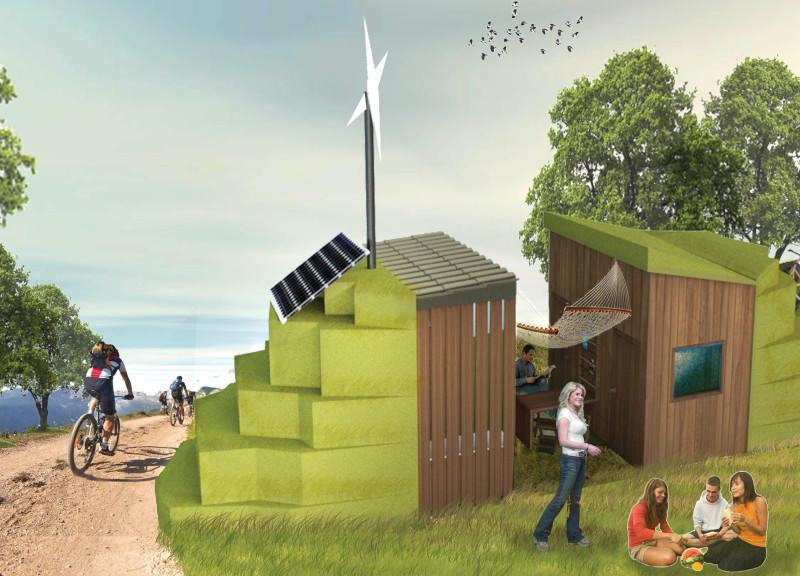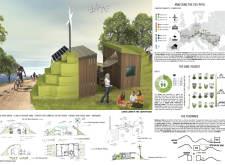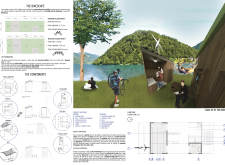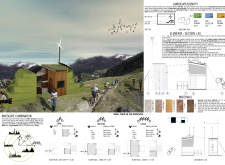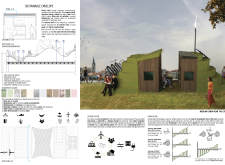5 key facts about this project
The Turf Wave project represents a sustainable architectural design aimed at enhancing the experience of cyclists traversing the popular EuroVelo 6 route in Europe. This project focuses on providing eco-friendly cabins that serve as resting points along this cycling path. The design emphasizes harmony with the natural environment while ensuring functionality and comfort for users while promoting sustainable practices.
The Turf Wave cabins are modular structures made from locally sourced materials. The design concept integrates renewable energy sources and water conservation systems, allowing the structures to function independently from traditional utilities. Features such as green roofs, solar panels, and rainwater collection mechanisms underline the project’s commitment to environmental stewardship.
Sustainability and Modularity
One of the most notable characteristics of the Turf Wave project is its modular design. The cabins can be configured in various sizes—small, medium, and large— catering to different user needs. This versatility allows for adaptability based on demand while optimizing space utilization. The modular approach also simplifies construction and maintenance, resulting in a more efficient use of resources. The design uses sustainable timber for structural components and emphasizes energy efficiency through innovative thermal insulation methods.
The integration of green roof technology serves multiple purposes, including enhanced insulation, biodiversity support, and effective rainwater management. This aspect of the design not only contributes to the aesthetic appeal of the cabins but also aligns with ecological principles by promoting local flora and fauna.
Functional and User-Centric Design
The Turf Wave project prioritizes functionality and user experience. The cabins include essential amenities such as communal areas for social interaction, workspaces, and sanitation facilities, accommodating the needs of cyclists. The comfort of occupants is considered through the inclusion of flexible sleeping arrangements, which can be adapted depending on the number of users. The design encourages community engagement by creating shared spaces that foster social connections among users.
Off-grid capabilities enhance the functionality of the cabins. The incorporation of solar panels and wind turbines allows for renewable energy generation, while composting toilet systems reduce water consumption and environmental impact. These features collectively support the goal of creating a self-sufficient shelter along cycling routes.
The Turf Wave project stands out due to its innovative approach to temporary accommodations within a landscape context. Its careful balance of design, sustainability, and user experience sets a benchmark for future architecture serving similar functions along cycling pathways.
To explore the architectural plans, sections, designs, and ideas of the Turf Wave project further, readers are encouraged to review the project's detailed presentation for a comprehensive understanding of its design philosophy and practical applications.


